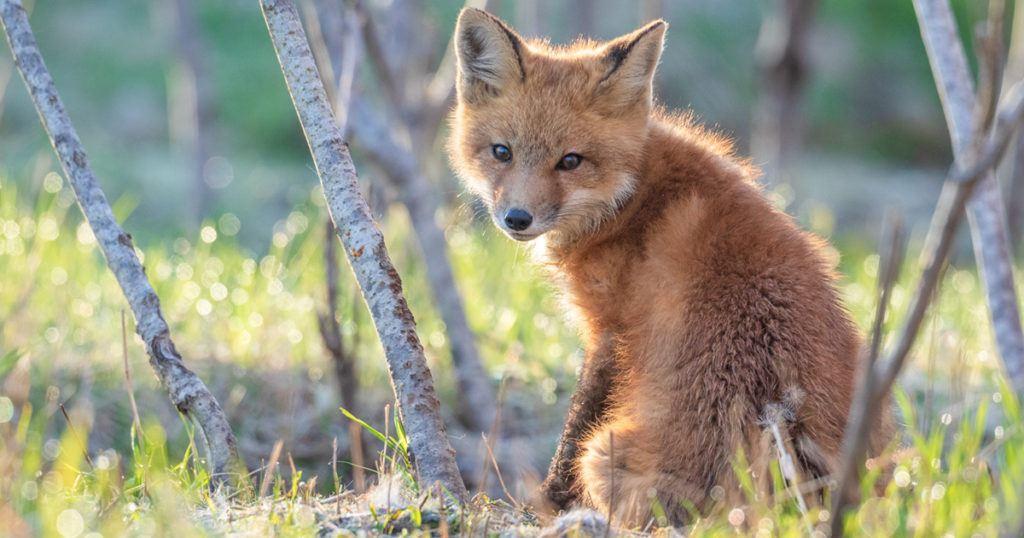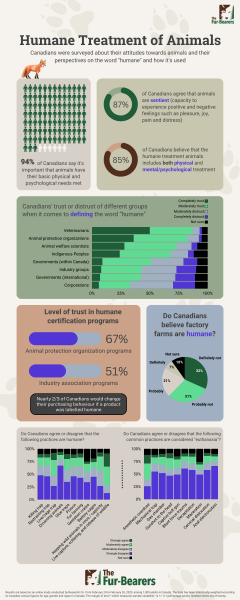
Photo by gqxue / Getty Images
The Fur-Bearers commissioned a national survey from February 24 to 26, 2023 measuring Canadians’ attitudes towards generally accepted practices involving animals, and whether these practices are considered “humane”. The results provide important insights into the public’s understanding of the word “humane” and creates opportunities for discussion involving the advancement of animal welfare in Canada.
Eighty-five percent of Canadians believe that the humane treatment of animals involves both physical and mental/psychological treatment, and 94% of Canadians say that it’s important to them that animals have their basic physical and psychological needs met. These shared understandings indicate the importance of treating animals humanely. But what does that entail and what does humane treatment look like?
Defining Humane
Click the button below to read the full results.
Results are based on an online study conducted by Research Co. from February 24 to February 26, 2023, among 1,000 adults in Canada. The data has been statistically weighted according to Canadian census figures for age, gender and region in Canada. The margin of error—which measures sample variability—is +/- 3.1 percentage points, nineteen times out of twenty.

